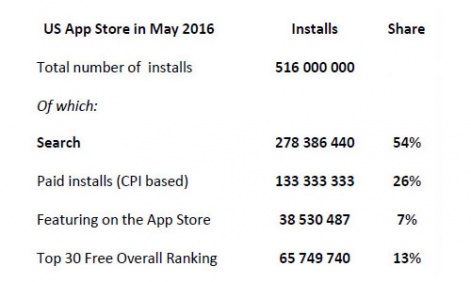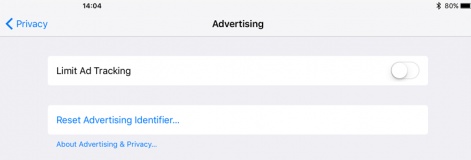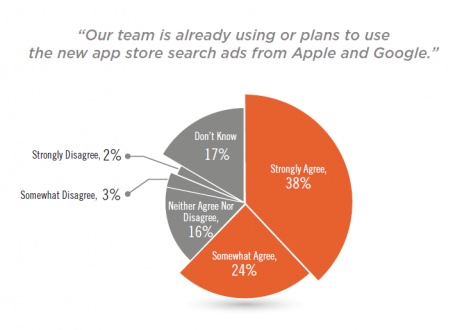The reveal of new tweaks to Apple's Limit Ad Tracking feature for iOS 10 has been the source of much discussion in the user acquisition sector.
Limit Ad Tracking, as it appeared in iOS 9, gave users the option to limit the information they sent to advertisers while still generating a unique ID per device.
Crucially, this still allowed advertisers to track specific users.
But in iOS 10, every device with Limit Ad Tracking turned on will return the same, generic device ID to advertisers.
With an estimated 15% of users opting in to Limit Ad Tracking, the inevitable data loss is a frightening proposition for those in UA.
But while some have turned prophets of doom over the changes, others have downplayed their impact and looked to other device fingerprinting solutions that can continue to capture that otherwise-lost 15%.
For a developer's perspective, we put the topic to our Mobile Mavens:
- Will iOS 10's option to Limit Ad Tracking severely affect the UA market?
- Relatedly, will you be using the new App Store Search Ads as part of your future UA campaigns?
It's only a matter of time until the workarounds are eliminated.Richard Hazenberg
My guess is this will benefit the companies that have access to their own user data as part of serving ads most, such as Facebook (and maybe Apple search ads).
Acquisition-driven ads (pay per install) could suffer due to lack of measurement options, which clearly may be fixed with workarounds.
The problem with workarounds is that if this is against the intentions of Apple to tackle the issue in the first place, it's only a matter of time until the workaround to be eliminated as well.
So what is Apple's intention? I don't know; maybe simply looking out for the interest of their users. Nice subject for the conspiracy theorists.

Jean-Philippe has 5 years' experience building startups and advertising mobile games globally. He has a strong entrepreneurial mindset and highly developed expertise in sales strategy, team management, user acquisition, game design, user engagement and monetization.
Jean-Philippe started his career working for the mobile game publisher Chugulu where he was in charge of designing and marketing free to play titles. He contributed to the success of the award winning e-commerce platform lazada.ph while working for Rocket Internet as Global Venture Director in the Philippines. After Rocket Internet, Jean-Philippe joined HitFox as Head of Business Development for mobile games marketing ventures GameFinder and AppLift. He helped grow and develop both companies internationally as Chief Revenue Officer.
Interesting topic indeed!
Has anyone published data about how much of paid acquisition is currently being tracked with IDFA vs. fingerprinting? I have never seen such a study but it would be great to know.
In my experience, fingerprinting is still widely used by attribution providers to match clicks and installs, but I don't have data to back it.
There are several reasons for that, one being that publishers don't always pass back IDFAs to networks they work with.
So I don't believe this feature is going to change much for the UA market, as I am convinced the industry is already relying a lot on fingerprinting for tracking anyway.
Personally, I don't think paid search will be very relevant on iOS for advertisers.
I published a study with PrioriData recently on PocketGamer.biz about search in the US App Store and the data we collected shows that approximately 70% of people search for branded keywords such as "angry birds" vs. generic keywords such as "free game".

And when you dig deeper into generic search, you find out that a rough 60% of search is related to games (mostly casual, kids and female games) and utility apps for social media such as "likes for instagram".
Sad story is, there are very few keywords with decent volume of search (search leading to at least 100 app installs per day) in the App Store that are relevant for advertisers to bid on.
The other option would to bid on competitors branded keywords, and we already see some advertisers doing this on Google Play.
I unfortunately don't have data to share on this, but I can't believe people will install Lyft when they just searched for Uber...
I hope paid UA completely goes away. Although it’s probably more likely I’ll be visiting Mars in the next 6 months.
Sure, paid UA is an industry that employs people that they would have to lay off if it crashes, but the current game ecosystem is severely unbalanced.
The top 0.00001% makes 99.9999% of the revenue.
I hope paid UA completely goes away, but it’s more likely I’ll be visiting Mars in the next 6 months.Dave Castelnuovo
There certainly is an app discovery problem, but last I checked, paid UA contributes to this imbalance more than anything else thanks to big players throwing gobs of money at UA.
And they don’t always spend money on UA in order to gain users. Often, it’s about driving prices up and taking over available inventory so their future competitors can’t afford to compete.
You can blame the app store all you want for the inability of most games to be discovered, but Apple does try it’s best to promote a variety of games on its available platforms.
The issue is that any placement outside of the main app store page is ineffective. Users just don’t pay enough attention for a second page promos or to app collections.
Even if a game gets the fabled front page promotion, they drop after the first week because they can’t keep up with these other paid channels. That’s not Apple’s fault, it’s because of out of control UA.
So I think the motivation by this latest move by Apple is two-fold.
On one hand they want more power to curate the app store (which is a good thing), on the other, it’s the right thing to do. To give users control over how their information is tracked by companies.
As far as workarounds go, one thing has been constant when Apple wants to make changes to how the app store works.
They will first attempt to make changes to functionality of the app store, then will attempt to change developer rules. Failing that, they will start rejecting apps that break the spirit of what they are trying to achieve.
By Apsular making their workaround public, they are asking for Apple to reject any app that uses their service.
But will this change will impact UA at all? Hell no.
Maybe it’s a slight speed bump, but really it will have no meaningful impact on UA spending. Apps with money will always find a way to spend it.
Device fingerprinting has come a long way and it is important to the user experience. Deep linking exists because of device fingerprinting.

Paid UA won't go away. It may just become more expensive because it will require partnerships with companies that can provide a 100% match of the device, or it will require this tech to be built by the ad network.
It is really amazing how much anonymous data can be collected about a device. Ad networks are getting better at detecting fraud and user profiles because of this tech.
What's really interesting is the publishers that have games with high market adoption may now have an upper hand in negotiating terms for download spends, because they can "share" so much more fingerprint data with the ad partners thanks to a few lines of code that find all of the open API services from other apps.
We are very interested in the App Store Search Ads. We’ve applied for the Beta. Anything as an alternative to Facebook Mobile Ads is worth considering at this point.

The lack of ad tracking will be problematic, as it makes evaluating cohorts difficult. It will be interesting to see how the analytics companies respond.



























